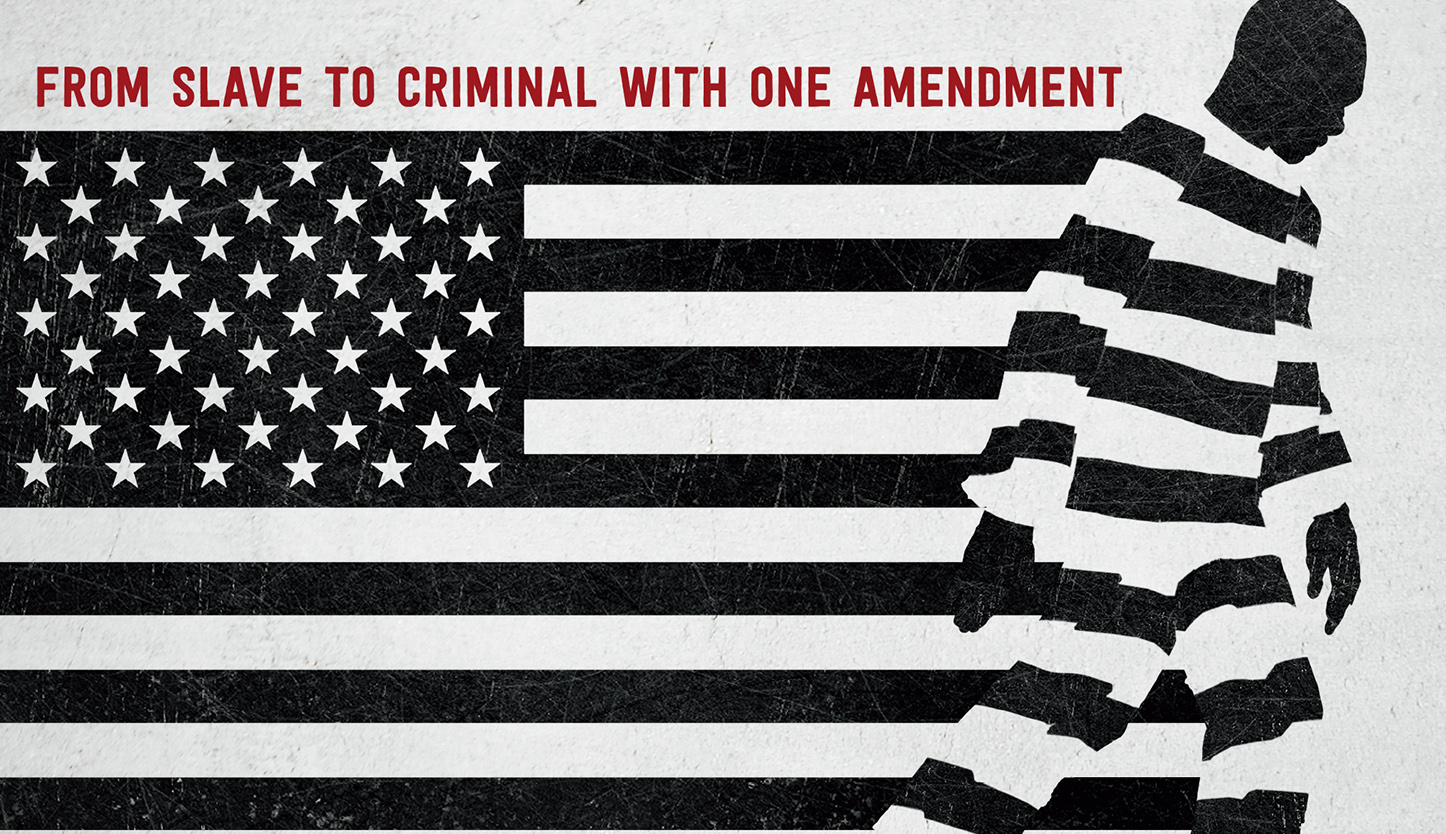@AVAETC
Criminal. Black. Guilty.
These three words are synonymous in a way that is damning to not only Black people in the United States, but internationally. But America, land of the sometimes free, is where these associations were perfected. And though all Americans are supposed to be subject to all laws, Blacks remain repeatedly jailed, shot, and left dispensable and disregarded by the authoritative powers of the state – with full intention. And, by straight up, non-punishable, white supremacist violence.
So, the 13th Amendment of the United States of America, designed to abolish slavery and involuntary servitude in 1865, is basically scrap. The text goes as follows:
“Section 1. Neither slavery nor involuntary servitude excepts as a punishment for crime whereof the party shall have been duly convicted, shall exist within the United States, or any place subject to their jurisdiction.”
It should have been written to deny any loopholes.
Most of superstar filmmaker Ava DuVernay’s fans don’t recall that she began her filmmaking career in the documentary world (I still revere 2010’s My Mic Sounds Nice: The Truth About Women in Hip-Hop). What she does with her examination into how the 13th Amendment soon after its adoption led to mass criminalization and the genesis of America’s prison industrial complex–done on the backs of Blacks, Latinos, and the poor, to make the United States home to the largest prison population in the world–is both dizzying and amazing. The former because of the statistics that are laid out, presented in creative, mostly stark black & white graphics on how prison industrialization grew in leaps and bound over the past six decades, and amazing, really, if you haven’t been paying attention to the world outside your door.

But really, most of us, even in the Black community, just haven’t. At the press conference following the early screening of 13th for this year’s New York Film Festival, DuVernay touched on how growing up, and still now, she would constantly hear about how many neighbors, and their loved ones, would be incarcerated, forcing her to examine the depths behind why this is so normalized. That’s really the point at hand how again, Black = Criminal, and the media and political Kool-Aid has been ingested to make White and Black people, and all Americans, and the entire world, feel comfortable in this regard.
Endorsed but not always publicly acknowledged on a federal level, this criminalization began during Reconstruction with the Black codes, restricting freedom and encouraging a low-wage labor economy and incarceration – aka, “slavery by another name,” eventually leading into Jim Crow. The post-Civil Rights era modern era followed, flooding the Black community with drugs, incarceration, and more. And this is all exacerbated by two factors: lynching (of which modern day police and police-related killings of unarmed Black civilians are the same) and media manipulation, beginning with late 19th/early 20th century newspapers decrying of the dreaded Black menace that doesn’t really exist and by D.W. Griffith’s 1915 Ku Klux Clan glorification film “The Birth of a Nation,” and sensationalized in the modern era by basically every mass media market, whether conservative or liberal-seeming.
The “talking- head” experts that DuVernay uses to dispense this information and more come from a wide array of experiences: historians (Jelani Cobb and Michelle Alexander, to name a few), activists (Angela Davis in particular shines in this, as her own unjust 1972 trial is beautifully examined), politicians, and formerly incarcerated women and men. It can be argued that there are too many interviews profiled, but the knowledge that they share, and the cinematic-looking, and intentionally labor-themed settings they are placed in, make these interviews extremely watchable.
13th is not the first documentary to present this information. Contemporaneously, the third in Tariq Nasheed’s African diaspora history series, Hidden Colors 3: The Rules Of Racism, “tackles the taboo subject of systematic racism…[exploring] how institutional racism effects all areas of human activity, and the rules, laws, and public policies that are utilized to maintain this system.” Both films stand on their own as masterful works that will hopefully jumpstart the masses into discovering why things are they way they are and figuring out how to change this country for the better. We’ll see.
Ava DuVernay’s 13th can be seen on Netflix beginning Friday, October 7th.

Related Links:
- 13th Amendment to the United States Constitution
- “Slavery By Another Name” book
- “Slavery By Another Name” film
- Black Codes
- Angela Davis biography

